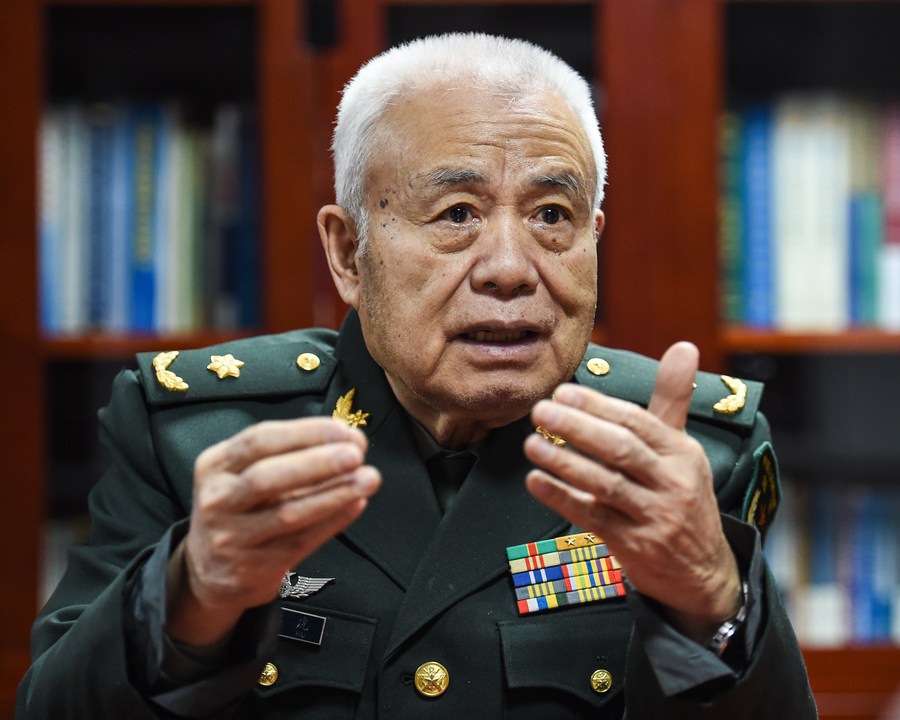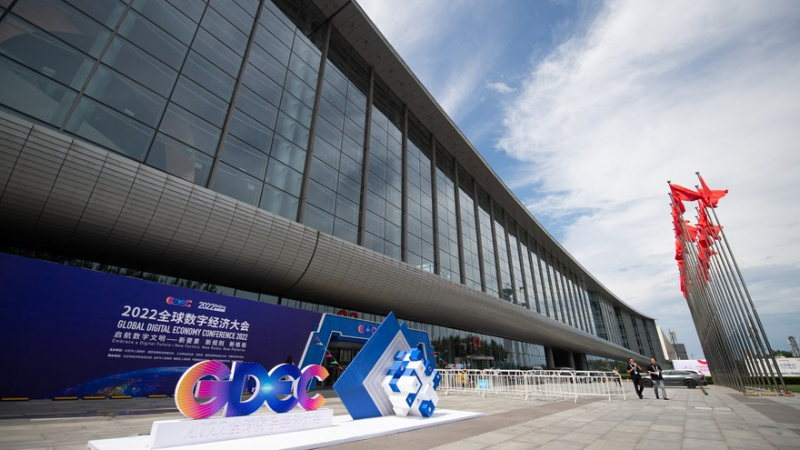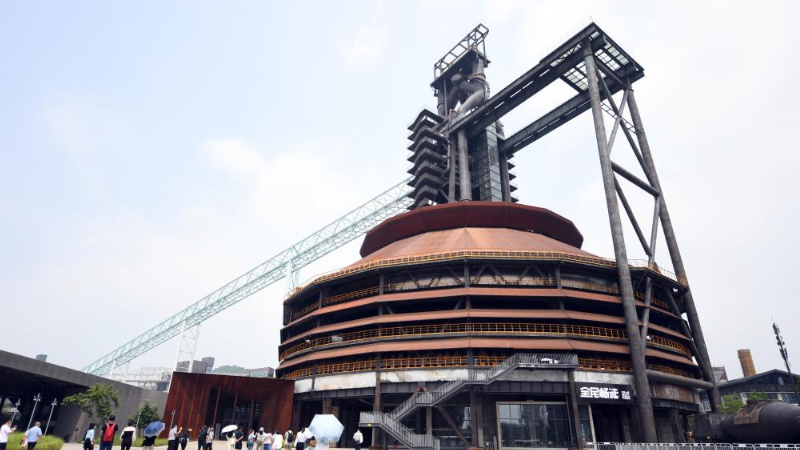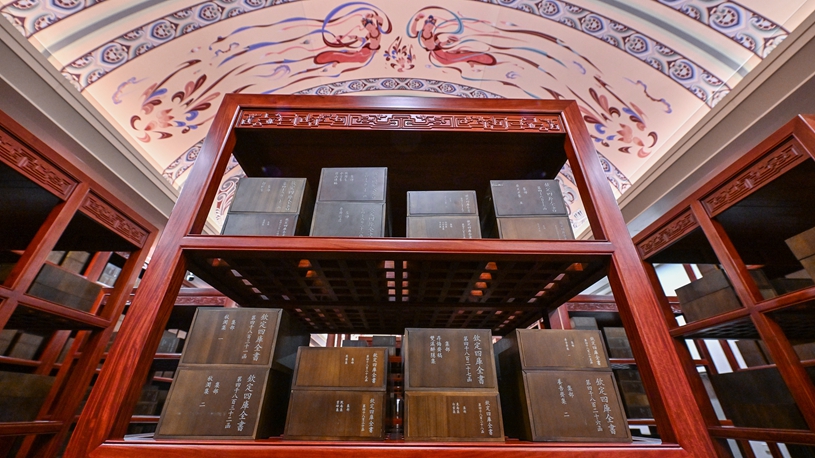
Qian Qihu receives an interview at his office on Dec. 27, 2018. (Xinhua/Li Bo)
BEIJING, Aug. 2 (Xinhua) -- Qian Qihu, a military engineer and an academician of the Chinese Academy of Engineering, has dedicated himself to making the country's needs his own aspirations.
He was awarded the August 1 Medal, the highest honor in the Chinese military, ahead of the 95th anniversary of the founding of the Chinese People's Liberation Army, which falls on Monday.
Qian is the founder of the theory and discipline of China's protective engineering, which refers to various construction work to resist military attacks. He has worked in frontline programs in mountains, deserts and islands. In his 80s, he continues to work for the country.
Back in the early 1970s, Qian was commissioned to design protective doors for aircraft caverns of China's air force.
At that time, China faced severe external threats. In Qian's view, if nuclear weapons are sharp spears, then protective engineering is a strong shield against hostile forces.
In order to solve the problems in the original design, he went to the nuclear explosion test site for investigation and research. After the nuclear explosion, Qian rushed to ground zero in protective suits as soon as possible to collect the necessary data.
After that, he adopted the newly emerging finite element method to complete the design through a large number of engineering structure calculations. The protective doors for underground aircraft caverns he designed had the longest span and highest resistance in the country at that time.
After finishing the design, he also began to study the application of the finite element method in the calculation of engineering structures. The study was highly honored at a national science and technology conference.
With the development of modern military technology, high-tech and precision-guided weapons, such as the precision-guided earth-penetrating bombs, have emerged to present new challenges to protective engineering on the modern battlefield.
To protect defense facilities from the new threats, Qian led his team to establish academic theories and technical systems ranging from shallow buried to deep buried engineering protection, from single to systemic engineering protection and from conventional to ultra-high resistance protection.
His team also set the first protection standard for civil air defense programs in China and solved a series of key technical problems in the protection programs against nuclear weapons and conventional weapons.
In 2019, Qian won the national top science award at an annual ceremony held in Beijing.
Besides the military programs, he has also been selected as a member of the expert panels in major national civil projects and brought practical and important suggestions for projects such as the Hong Kong-Zhuhai-Macao Bridge, Xiongan New Area, South-to-North Water Diversion Project, west-to-east gas transmission project, and underground energy reserves.
As a renowned academician, Qian has focused on cultivating talent among young generations. In 2019, he donated 8 million yuan (about 1.18 million U.S. dollars) he received from the national top science award to help students with economic difficulties continue their education.
For decades, a large number of young professionals once tutored by Qian have become backbones for China's protective engineering field. ■












